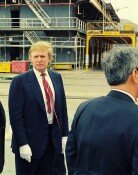Small-scale investors left out in stock market rally
Small-scale investors left out in stock market rally
Posted May. 11, 2011 05:51,
A 34-year-old civil servant invested 15 million won (13,900 U.S. dollars) early this year in a couple of low evaluated stocks in finance and shipping but lost 10 percent of his investment.
Ordinary individual investors cannot afford expensive stocks worth 400,000 to 500,000 won (370 to 462 dollars) each and just buy small-cap stocks, he said, adding, Stock prices are said to be at all-time highs but individual investors are angry.
Stock prices peaked more than 10 times this year on the back of record-high performances of listed companies, but individual investors have yet to share in the benefits of the stock market rally.
With the increase in stock prices limited to certain large-cap shares, only institutional and foreign investors are reaping profits. For working class investors with small and mid-cap stocks or those who have to sell stocks due to household debts, however, they have been left out in the feast.
With even the stock market showing the Pareto principle, in which the top 20 percent of the population own 80 percent of all the wealth, the working class has not seen the riches from the stock boom trickle down to them.
○ Who takes all the profits?
While the price of large-cap stocks and those of exporters are skyrocketing, small and mid-cap stocks and those of companies producing goods for domestic consumption are sluggish.
The market capitalization of the top 20 stocks including those of Samsung Electronics, Hyundai Motor, SK Innovation and LG Electronics was 583.47 trillion won (540 billion dollars) Monday, or 49.69 percent of the entire value of the stock market. Shares that saw their rates of return soar this year were mostly those of conglomerates whose market capitalization is at the top.
Hyundai Motors stocks rose 34.75 percent from early this year and those of Kia Motors 41.9 percent. S-Oil jumped 50.16 percent in value and OCI shot up 71.3 percent.
The effects of the stock market rally are also not evenly distributed. On the KOSPI 200 that includes most major Korean companies, the share of domestic public equity funds is less than 10 percent, preventing small-scale investors from reaping benefits though companies listed on the index have posted good performances.
Instead, major shareholders, foreign investors and certain big players have monopolized the benefits.
A 43-year-old office worker said, I`ve long invested in stocks and gained small profits amounting to pocket money, but since last year, I`ve felt a greater sense of deprivation, adding, The KOSPI continues to hit record highs but stocks I invested in are still in negative territory.
Kang Seong-mo, an executive at Korea Investment & Securities, said, Korean companies posted record-high performances but strictly speaking, this is only the process of maximizing shareholder profits and has little effect and bearing on the national economy because it does not create jobs or raise consumption.
○ Polarization of financial instruments
For the growth of listed companies to have a spillover effect on the people, financial investments and funds should be more open. Polarization in financial instruments is apparent, however.
Comprehensive wealth management accounts, also known as wrap accounts, grew popular among investors from last year, but are not accessible to the working class since the subscription amount for such accounts is at least 50 million to 100 million won (46,250 to 92,500 dollars).
Despite this, the value of wrap accounts operated under the advice of fund managers has surpassed 8 trillion won (7.4 billion dollars) and has grown about 100 billion won (92.5 million dollars) every month from early this year.
In contrast, public funds easily accessible to the people are being dumped en masse. According to Korean Financial Investment Association, 3.4 trillion won (3.1 billion dollars) worth of domestic equity funds and 3.8 trillion won (3.5 billion dollars) worth of foreign equity funds were resold this year.
Kim Se-joong, director of Shinyoung Securities, said, Small-scale investors are leaving the stock market through funds reselling due to household debts. In contrast, big investors are entering the stock market through wrap accounts, adding, Those who fail to join the market when stock prices rise cannot enjoy the effects of wealth expansion of the market.
teller@donga.com







